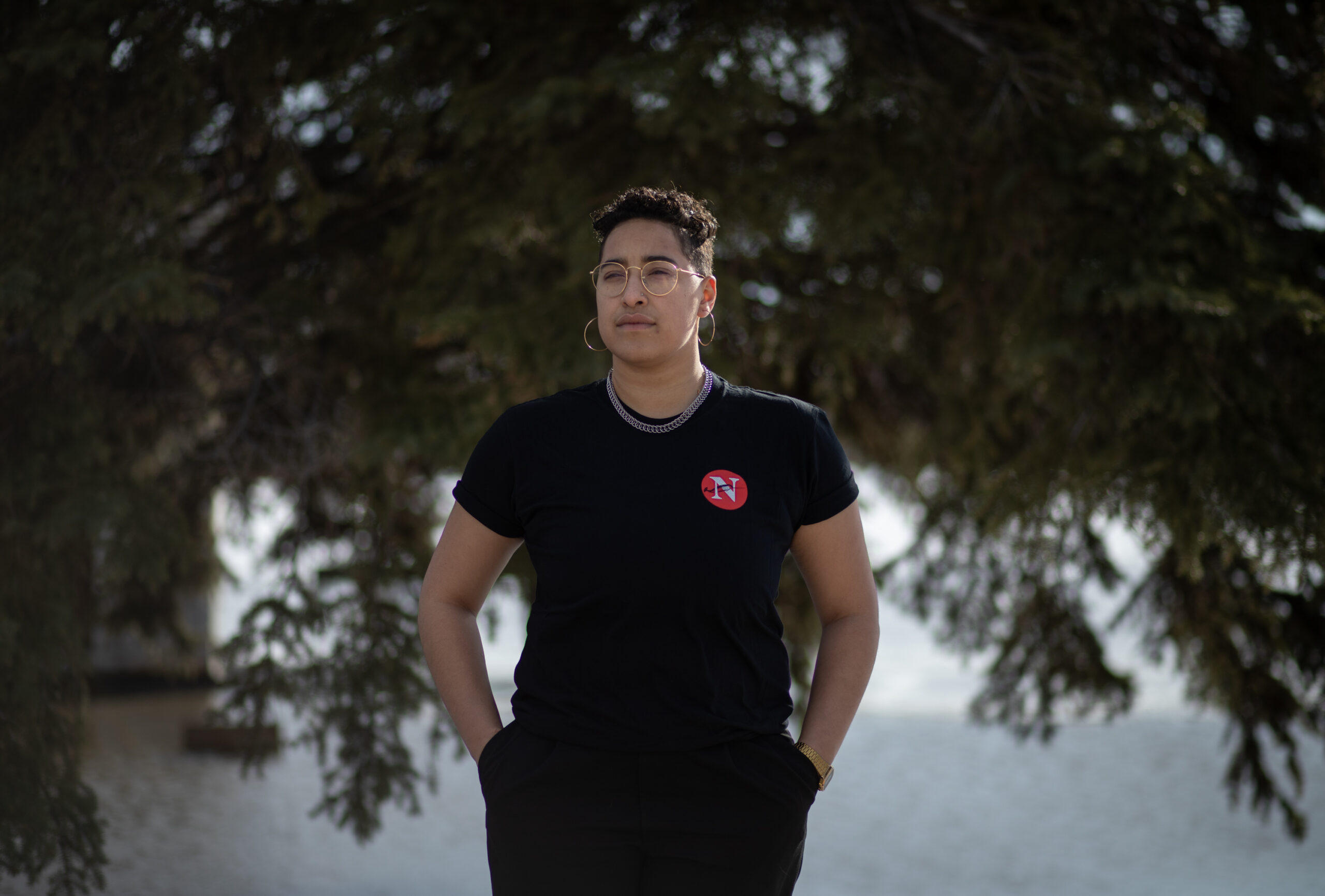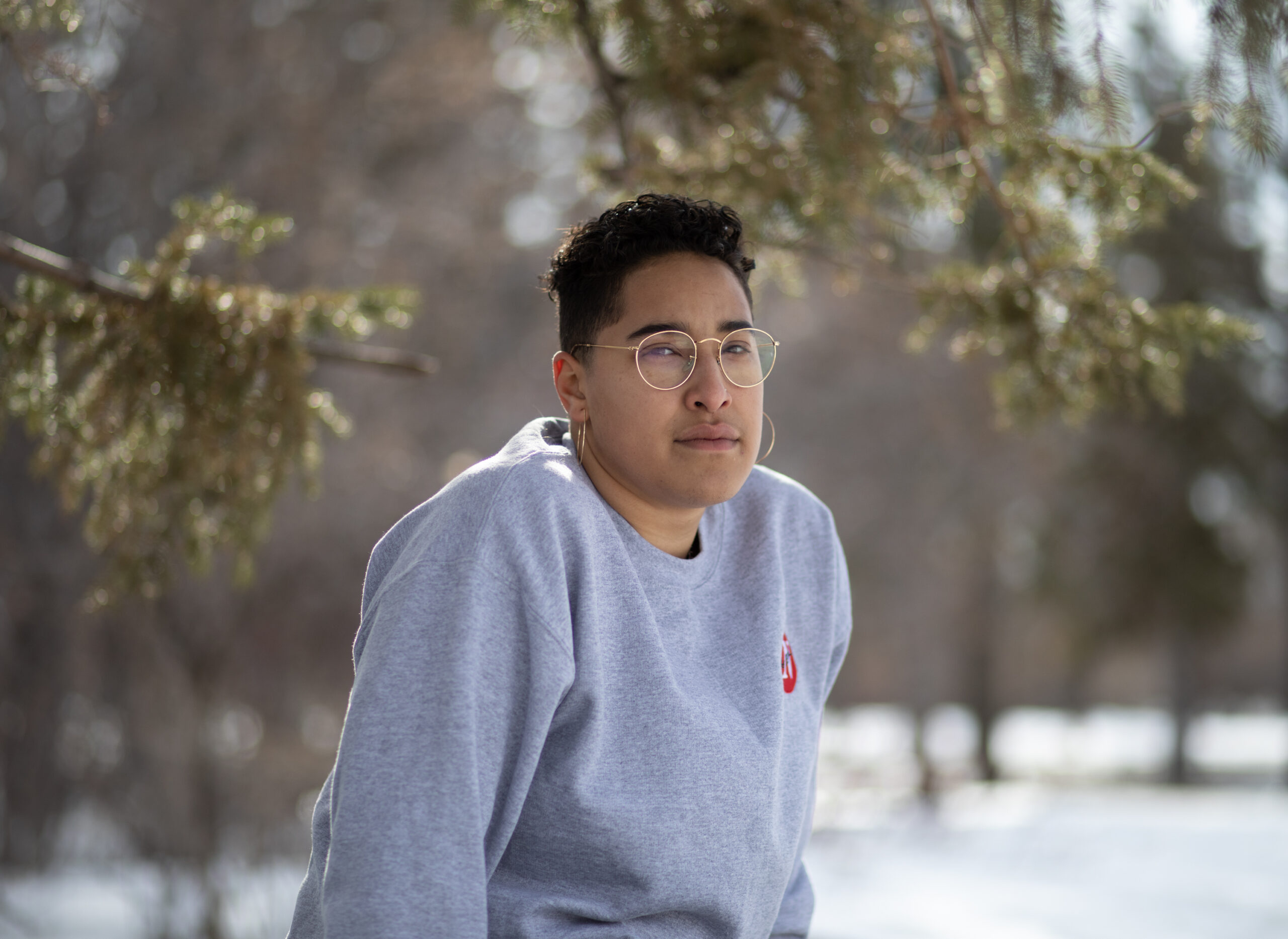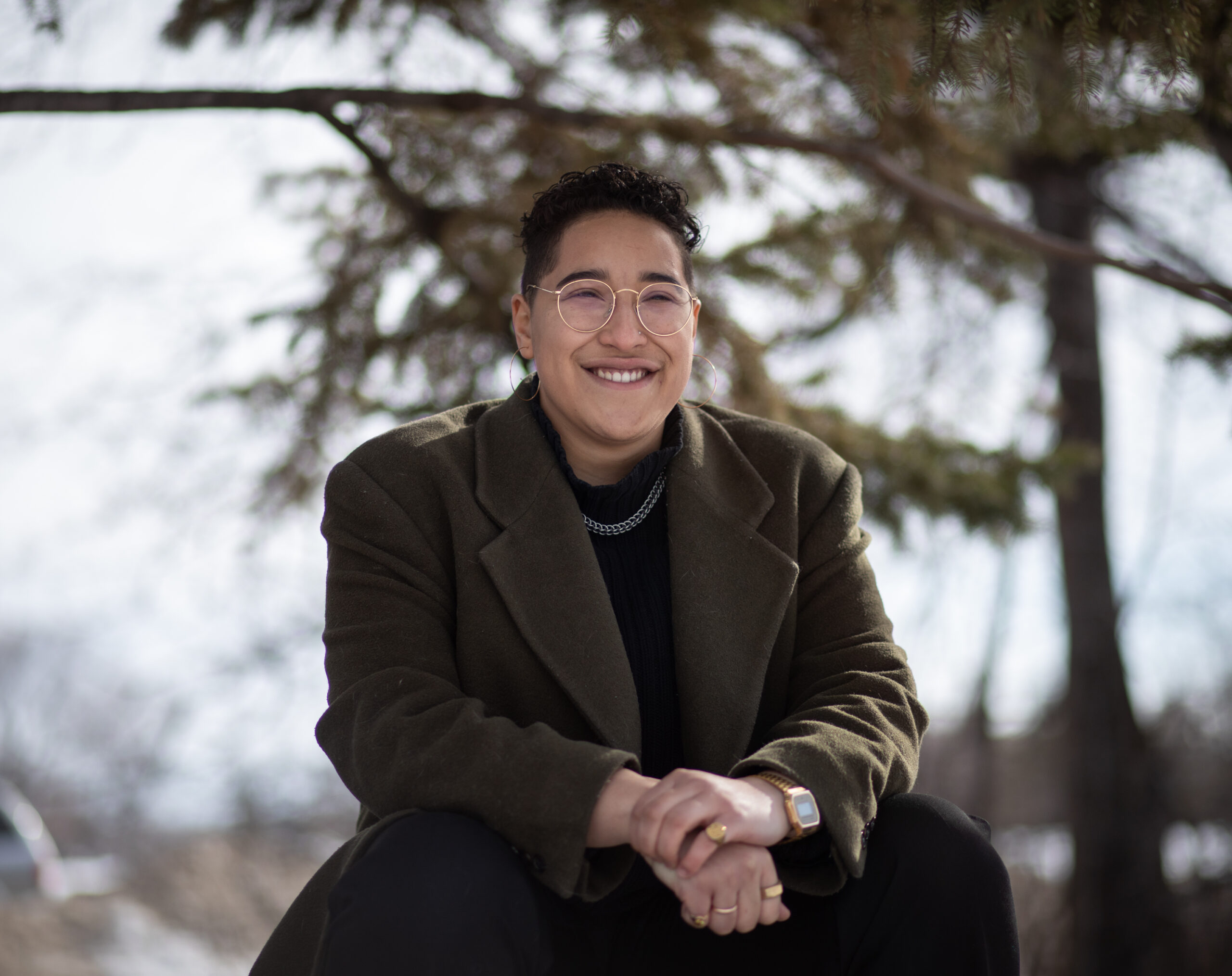
Hope for a huge, ancient and imperilled fish
First Nations are leading efforts to make sure lake sturgeon can find a home in...
During a recent trip back home to her parents’ house in Calgary, Julia-Simone Rutgers may have discovered the origins of her journalism career.
It was captured on video from when she was in elementary school.
“We had one of those old VCR cameras that everybody had for home videos back in the early 2000s and there are some tapes on there of me recording an interview with my little brother as he built a lego city in our basement,” she says.
That instinct for reporting led Julia-Simone to decide in high school that she wanted to pursue journalism, heading off to University of King’s College in Halifax for her bachelor’s degree in journalism and contemporary studies.
Julia-Simone is now the newest Prairies member of The Narwhal pod as our Manitoba reporter — an innovative new position created in partnership with the 150-year-old Winnipeg Free Press with support from the Winnipeg Foundation.
“The Narwhal is thrilled to draw on the local expertise of the Winnipeg Free Press to bring in-depth coverage of Manitoba’s natural world to our audience across Canada,” said Emma Gilchrist, editor-in-chief of The Narwhal.
“This innovative partnership is one of the first of its kind in Canada and marks a new era of collaboration between digital and legacy news outlets.”

Julia-Simone says her unique new role as an environment beat reporter in Manitoba provides opportunities to connect different types of stories to the audiences of both The Narwhal and the Free Press.
The position will leverage the reach and local credibility of the daily Winnipeg newspaper along with the subject matter expertise about the natural world The Narwhal is known for, filling a void for in-depth and investigative environmental journalism in Manitoba.
Based in Winnipeg, Julia-Simone first started reporting for the Free Press in 2020, just as the COVID-19 pandemic began. Since November 2021, she took on a special six-month assignment as the first Justice Fund Black Writer in Residence at The Walrus. She has also previously reported for StarMetro Halifax, along with a few bylines in the Globe and Mail, the Coast and The Discourse.
We chatted with Julia-Simone about her reflections on journalism, her hobbies and her not-so-secret ambition to moonlight as a DJ.
Ultimately, we’re staring down a world where ideas are becoming further and further entrenched and opinions are becoming further and further entrenched and I think division and misinformation are becoming more and more prominent. And journalism is in a unique position where we’re being called to sort of straddle this divide — to bridge the divide and to push back against a tide of misinformation and disinformation that further builds those walls and those divisions between people. So I think there’s a unique responsibility right now to be aware of that power and resist the temptation to fall into entrenched views and further division.

I think there are two things that come to mind here. First of all, we know that journalism is an industry that has had to restructure and re-establish its methods of funding — reestablish its sense of sustainability. There’s been a mounting pressure on journalistic institutions and we’ve seen a lot of places had to massively downsize. So I think a collaborative role like this can set a precedent for further collaborations, for sharing resources and talent and stories that are relevant in our publications. I think this can pioneer a new way to find some sustainability in this field. On a more local level, I think that collaboration is important because the audience of these publications, the Free Press and The Narwhal, are slightly different. The Free Press has an established role in the community and I think harnessing that trust in the community to tell these stories is really going to expand the reach that these stories get. I’m very hopeful that they will be able to change and soften minds in this province in a way that I don’t think has really been done before.
I moved to Manitoba in February of 2020 and two weeks later, there was a pandemic. I moved for a job originally with the Winnipeg Free Press. So I was in a new province, with a brand new role, and very quickly had to adjust to living and working in a way that was completely different from what I was used to. I remember early in the pandemic, standing outside with my laptop waiting for the movers to bring the rest of my stuff from Nova Scotia into my house, while I was on deadline. I think it pushed me to work very independently — and from my living room, which is a blessing and a curse at times. But it’s also pushed me to use my feet, to get outside and to hold onto the value of being present for stories. I think it sort of became easy, during the pandemic, to take a phone or Zoom approach to journalism, but it’s really shown me the value of getting out and doing things ‘shoe leather style.’ I’ve noticed that it affects the quality of my stories and our work, broadly speaking, in this field.

I told everyone yesterday that I’m an aspiring DJ. That’s something that I’m trying to get into. I love playing music. I dabble in a few instruments but I like to say I’m a master of none of them. I can be found making music in GarageBand in my spare time. Obviously, like anyone who writes, I love to read. I’ve always considered myself an amateur poet. And so I try and spend time outdoors, writing and reading and finding new creative ways to express myself — hence the music and hence the hopeful DJing in the future.
Get the inside scoop on The Narwhal’s environment and climate reporting by signing up for our free newsletter. Angello Johnson’s shoulders burn, and his arms...
Continue reading
First Nations are leading efforts to make sure lake sturgeon can find a home in...

We’re excited to share that an investigation by The Narwhal is a finalist for the...

A new documentary, Nechako: It Will Be a Big River Again, dives into how two...
